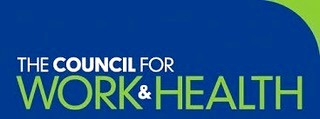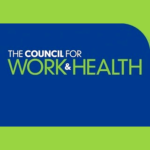
By Steve Boorman, Chair, Council for Work and Health
Work and Health Unit commissioned resource to support GPs in identifying work modifications.
You may be aware from previous contacts and, or consultations, that the Work and Health Unit (WHU), as part of its “Improving Lives” strategic programme, has identified a need to provide additional support resources to Doctors, to help them in supporting patients to identify work adjustments to improve workability and improve recovery.
The Council for Work and Health was commissioned to research and develop this work and a dedicated researcher was used to review published literature, collate existing available resources and to develop content. Council members and other contacts have been actively consulted during this development process and much work has been done to date.
You will also be aware from recent consultation that work has been underway to revisit the “Work as a Clinical Outcome” consensus statement due for relaunch shortly. The “Work as a Clinical Outcome” consensus statement reminds all healthcare workers that such conversations are an important part of clinical practice. This resource is primarily aimed at GPs to help support their medical consultations and consideration of “Fit note” options, and whilst this resource seeks to be used in a medical context we have tried to balance some clear advice that most work adjustments are simple and practical arrangements.
I would be grateful if you would share the link with your colleagues and invite them to contribute to user testing this resource as part of its continued development – we are keen to understand views regarding its content, accessibility and usefulness. Accessing the link will trigger a short feedback survey which will be in place over the next month’s testing period. We will then take stock and evaluate the feedback in consultation with the Work and Health Unit in order to finalise a resource, which is planned to be freely accessible via the Council for Work and Health website from April 2019.
The resource is deliberately written in a style and manner aimed at doctors – we absolutely recognise that the key in all this is people having good conversations with employers and this is being looked at elsewhere in the WHU programme – this piece of work is to encourage GPs to consider work adjustments in their consultations with patients.
This resource will not sit in isolation and many other converging programmes are also in development to support other health care practitioners, employees and employers to enable positive conversations on work options. We also recognise that different GPs will use resources in different ways, and that levels of knowledge and capability may be variable.
It is also recognised that good quality occupational health advice may help support and work is being undertaken on how best to provide such.
This resource has been developed for use by doctors during their clinical consultations with patients, it is illustrated with some simple case studies and there may be opportunity to add to these later.
This is still work in progress, and the following link will give free access to the current version, which we are keen to now seek further feedback and evaluation upon.
https://www.councilforworkandhealth.org.uk/work-modifications/
If you follow the link it will take you to the Council for Work and Health’s website and the relevant resource page. The resource can be read from start to finish if preferred, but we anticipate users will jump to relevant sections, links or case studies and that in time we can provide more relevant linked content applicable to wider stakeholders. The evaluation resource will generate a simple survey on closing and we hope that you will feel able to share the link as widely as possible and encourage stakeholders to give feedback during the next month. After this period we will consider any necessary revisions and more formally plan to launch the web resource in March 19.
I know some stakeholders will feel that this resource risks medicalising the work and health conversation, once again the context, we are testing here, is for use in General Practice and to support patients in starting conversations where appropriate.

